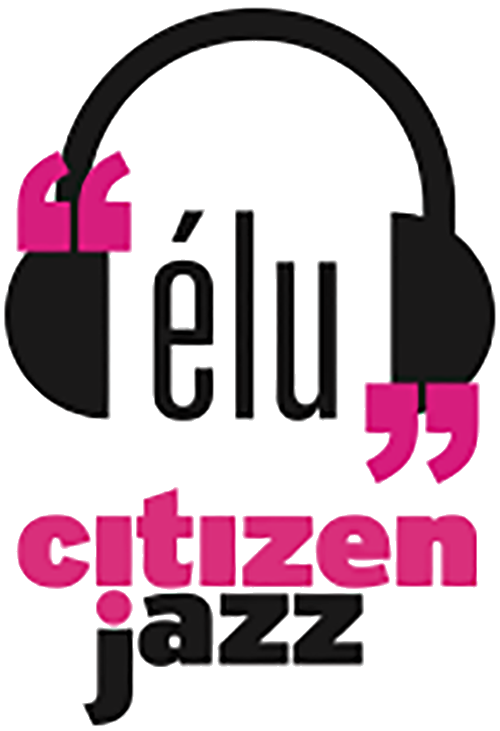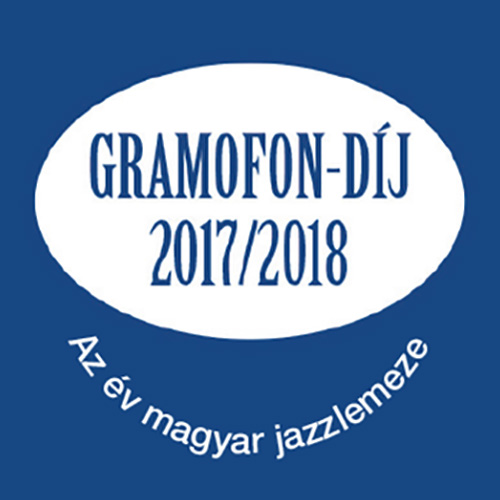Miklós Lukács, Larry Grenadier, Eric Harland Cimbalom Unlimited
Cimbalom virtuoso Miklós Lukács is a breathtaking musician bringing remarkable technical rigor and creativity to his work. He’s blazed new paths for his instrument; dramatically expanding its capabilities, traversing a wide range of disciplines, and reinforcing the idea of music as that good old universal language. Calling this album, his first with the agile rhythm section of bassist Larry Grenadier and drummer Eric Harland, Cimbalom Unlimited is no hollow boast, nor is the fleet of jets emanating from the hand of the figure on the album art a flight of fancy. Lukács is taking lots of music all over the world, his reach truly infinite. But its essence is his alone. On the surface he’s traversing the worlds of European classical music, Romani tradition, and jazz, but his repertoire on the album extends much further.
Artists
Miklós Lukács – cimbalom
Larry Grenadier – double bass
Eric Harland – drums
About the album
All compositions by Miklós Lukács
Recorded at BMC Concert Hall on 2-3 June, 2016
Track 9 recorded live at BMC’s Opus Jazz Club on 4 June, 2016
Recorded and mixed by Viktor Szabó
Artwork: László Huszár / Greenroom
Produced by László Gőz
Label manager: Tamás Bognár
Reviews
Sebastian Scotney - London Jazz News (en)
John Pietaro - The New York City Jazz Record (2017 Honorable Mention) (en)
Ken Waxman - JazzWord (en)
Michael G. Nastos - (en)
Franpi Barriaux - CitizenJazz (élu) (fr)
Jean-Jacques Birgé - Mediapart (fr)
Thierry Giard - CultureJazz (fr)
Claude Loxhay - Jazzhalo (fr)
Karl Lippegaus - WDR Magazine (de)
Heinrich Brinkmöller-Becker - nrwjazz.net (de)
Hans-Jürgen Schaal - KultKomplott (de)
RD - Stereoplay (Jazz-CD des Monats) (de)
Guido Diesing - Jazzthetik **** (de)
Karl Lippegaus - Fono Forum (de)
Achim Doppler - Concerto **** (de)
Michele Manzotti - Il Popolo del Blues (it)
Geert Ryssen - Jazz&mo' (nl)
Yoshinori Shirao - Latina (jp)
Yukinori Omura, Hiroki Sugita - JaZZ Japan (jp)
Robert Ratajczak - LongPlay (pl)
k_carol - Donos kulturalny (pl)
Z. K. Slabý - UNI (cz)
Jan Hocek - Jazz Port (cz)
Peter Dobšinský - skJazz ****1/2 (sk)
Fazekas Gergely - 444.hu (hu)
Laczkó Krisztián - Gramofon ***** (hu)
Németh Attila - ekultura.hu (hu)
Olasz Sándor - Riff (hu)
Márton Attila - Demokrata (hu)
Dr. Nagy Sándor - Jazzma.hu (hu)
Czékus Mihály - HFP online (hu)
Komlós József JR - Alföldi Régió Magazin (hu)
Turi Gábor - Magyar Nemzet (label profile) (hu)
Miklós Lukács, Larry Grenadier, Eric Harland: Cimbalom Unlimited
The album is available in digital form at our retail partners
Since the beginning of his career Lukács has been transmuting traditions. He grew up around music thanks to his father, a fellow cimbalom player who continues to earn his living playing the sort of urban Gypsy music heard in Budapest restaurants. “I never played this kind of music, although it made a big impression on me,” he says. He began playing the instrument when he was eight, although the endeavor had less to do with an inner urge to make music than to salve pain he endured through childhood. “I had a migraine headache all the time and my parents found out that the only time I felt good was while listening to the cimbalom. So it was a doctor’s advice to start playing the instrument as a treatment.” The medication was successful, and Lukács became something of an addict. His early studies, both the Béla Bartók Conservatory and later the Ferenc Liszt Academy of Music, focused on classical music, but he was already carrying on conversations in different languages inside of his head. He performed as a featured soloist on a program of Liszt with the Budapest Festival Orchestra in 1997, and he traveled to the US to perform the following year.
Although he didn’t begin playing jazz until after he graduated from the university in 1999, the music took hold of his imagination many years earlier. “My first and main experience with jazz music was around the age of 10, hearing the Oscar Peterson Trio on the television,” he says. “The technical brilliance, the fluency of their playing, and the drifting of the music amazed me very much. However, I didn’t know that it was jazz.” He grew to love jazz and during his studies he listened to it more and more, struggling to understand how to play it on the cimbalom. He was set to become a translator. Although fellow cimbalom virtuoso Kálmán Balogh – with whom Lukács would go on to record a pair of duo albums – was already performing in the Jazz Manouche style of Django Reinhardt and Stéphane Grappelli, Lukács was interested in a more modern approach, something he was forced to develop on his own.
He was invited to play with Mihály Borbély’s Quartet B as a guest, and shortly thereafter he’d become a full-time member of the prestigious Dresch Quartet. In 2005 he formed his own quintet, although some of his first important improvised recordings were duo efforts, including the eye-opening 2005 album with pianist Béla Szakcsi Check it out, Igor. He worked with an increasing number of musicians both in Hungary and abroad, for instance the Viktor Tóth Arura Trio, the Dutch Braam-De Joode-Vatcher Trio, the German and Polish singers Michael Schiefel and Grzegorz Karnas, and the French saxophonist Christophe Monniot, just to name a few. At the same time, Lukács continued to ascend in the classical world, enlisted to perform the compositions of Péter Eötvös, and he also kept a foot in the folk scene, too. “I find my roots in folk music, my education was classical, and my love is jazz,” he says. “All of them are equally important because they complement and are influenced by each other.”
In 2013 he formed his nimble trio Cimbiózis, and began sharing his uncut vision with the world at large on two superb albums for the Fonó label. By then he’d already been invited by the legendary American saxophonist Charles Lloyd to perform with his Sky Trio at a concert in Budapest, in 2012. The encounter led Lloyd to enlist Lukács for his Wild Man Dance project just six months later, and he appears on the band’s eponymous 2015 recording on Blue Note – collaborating with the likes of pianist Gerald Clayton and drummer Gerald Cleaver, and putting him on a truly global stage.
Through his partnership in the Lloyd band Lukács worked with and befriended Grenadier and Harland. “Both of them are perfect players, open to different kinds of music,” he says. “That’s why I thought that they would be perfect partners for my music,” a hunch proven accurate by the dazzling, locked-in performances found on Cimbalom Unlimited. Jazz and Hungarian folk styles pulse at the heart of these performances, whether it’s pieces inspired by Bartók like Lullaby for an Unborn Child and Peacock Dance, respectively, pieces of aching tenderness and quicksilver velocity, or songs drawn from regional folk tradition, such as the adapted hajnali of Dawn Song, translated into a ballad. Lukács also reaches out further, reflecting his innate curiosity and desire to translate – a skill set demonstrated by his versatile, hard-hitting rhythm section. Somewhere was inspired by Persian classical music, a musical tradition with its own sort of cimbalom-type tradition with the kanun, while Sunrise in Chennai was composed after a visit he made to the titular Indian city, with a kind of translation of the santur, another cimbalom-like instrument.
The album mixes some of the leader’s older tunes with new ones. “I wanted to show many colors of the cimbalom, and to show that it’s an instrument of the twenty-first century,” he says. “I wanted to evoke the past to picture the present, and to regard the future with my own musical thoughts.” As ever, he’s translating, guiding us to new places.
Peter Margasak
Chicago, October 2016

